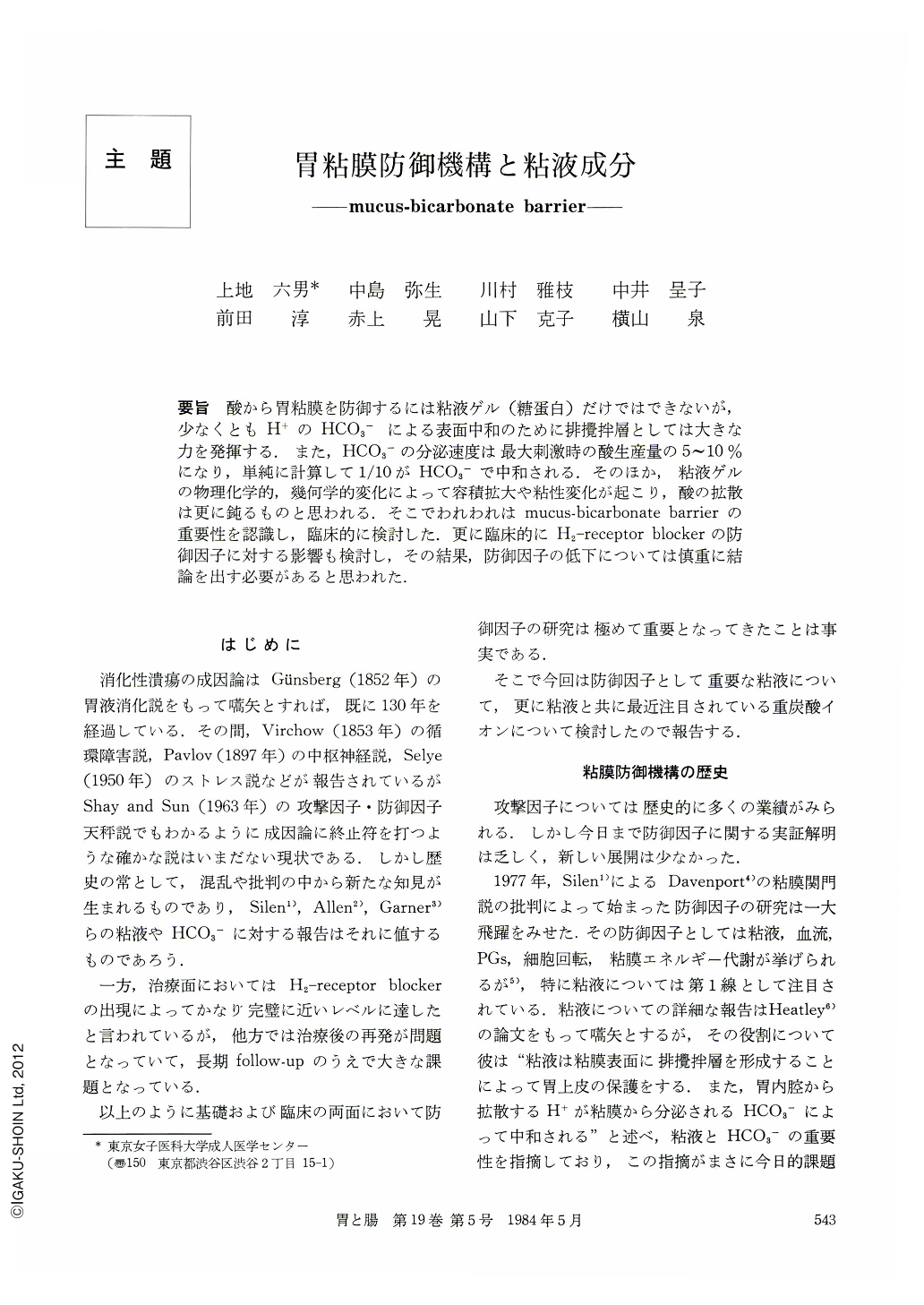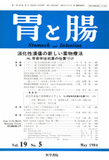Japanese
English
- 有料閲覧
- Abstract 文献概要
- 1ページ目 Look Inside
要旨 酸から胃粘膜を防御するには粘液ゲル(糖蛋白)だけではできないが,少なくともH+のHCO3-による表面中和のために排撹拌層としては大きな力を発揮する.また,HCO3-の分泌速度は最大刺激時の酸生産量の5~10%になり,単純に計算して1/10がHCO3-で中和される.そのほか,粘液ゲルの物理化学的,幾何学的変化によって容積拡大や粘性変化が起こり,酸の拡散は更に鈍るものと思われる.そこでわれわれはmucus-bicarbonate barrierの重要性を認識し,臨床的に検討した.更に臨床的にH2-receptor blockerの防御因子に対する影響も検討し,その結果,防御因子の低下については慎重に結論を出す必要があると思われた.
Mucus gel layer (glycoprotein) of the stomach may not be enough to protect the gastric mucosa from acid back-diffusion.
However, it plays at least big role as non-stirring layer for neutrizing H+ by HCO3-.
On the other hand, a secretin rate of the HCO3- is 10% of maximally-stimulated acid out-put (MAO) and approximately its 1/10 is neutralized by the HCO3- according to simple calculation.
Other than that, physiochemical and geometric a changes of the mucus gel layer induce its volume expansion and viscosity change, then the acid backdiffusion further decline.
Therefore, we focused an importance of the mucus-bicarbonate layer and evaluated its significance clinically. Furthermore, we evaluated an influence of H2-receptor blocker on defence factors clinically and proposed that careful consideration should be applied on deterioration of the defence factors.

Copyright © 1984, Igaku-Shoin Ltd. All rights reserved.


